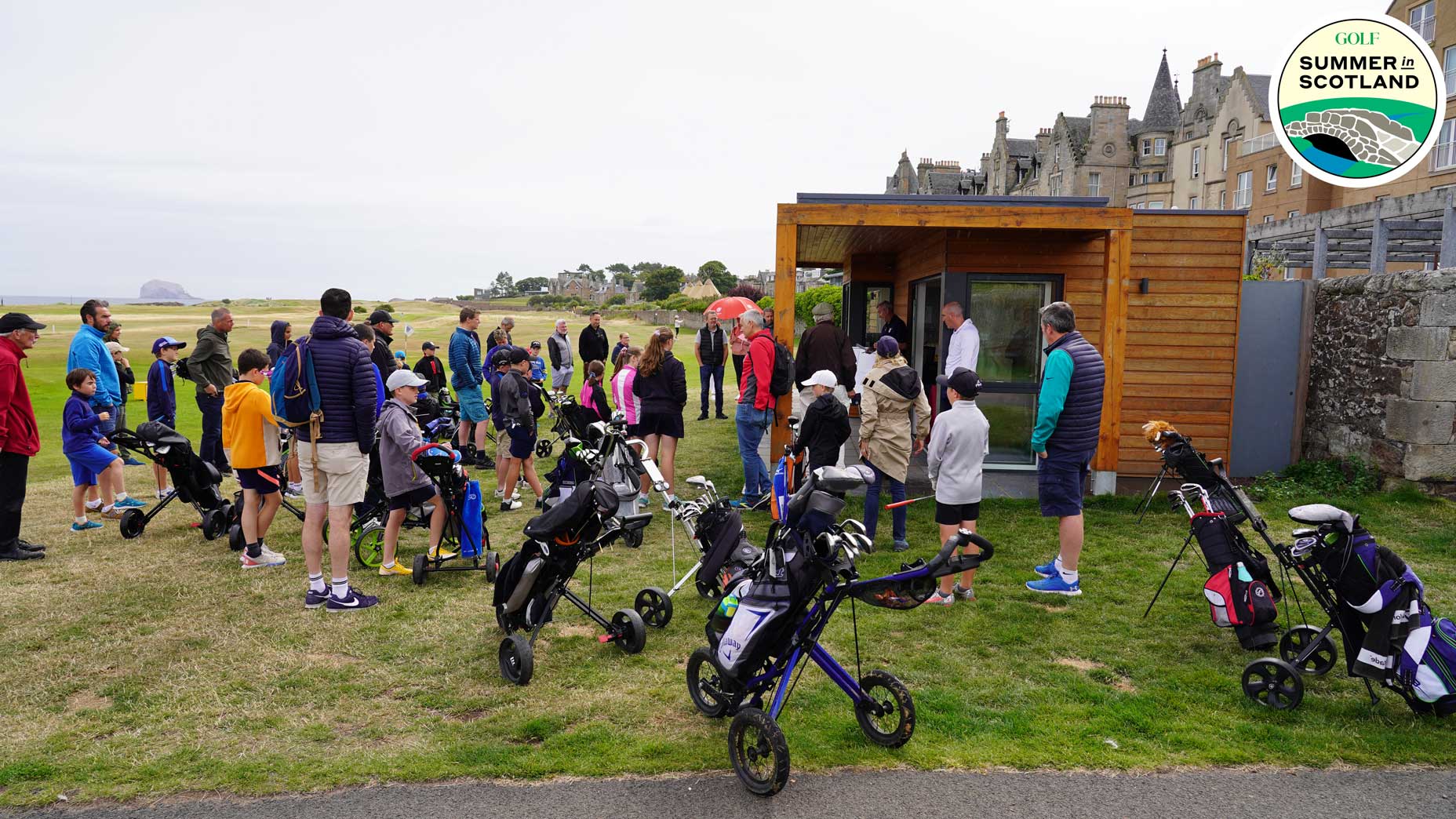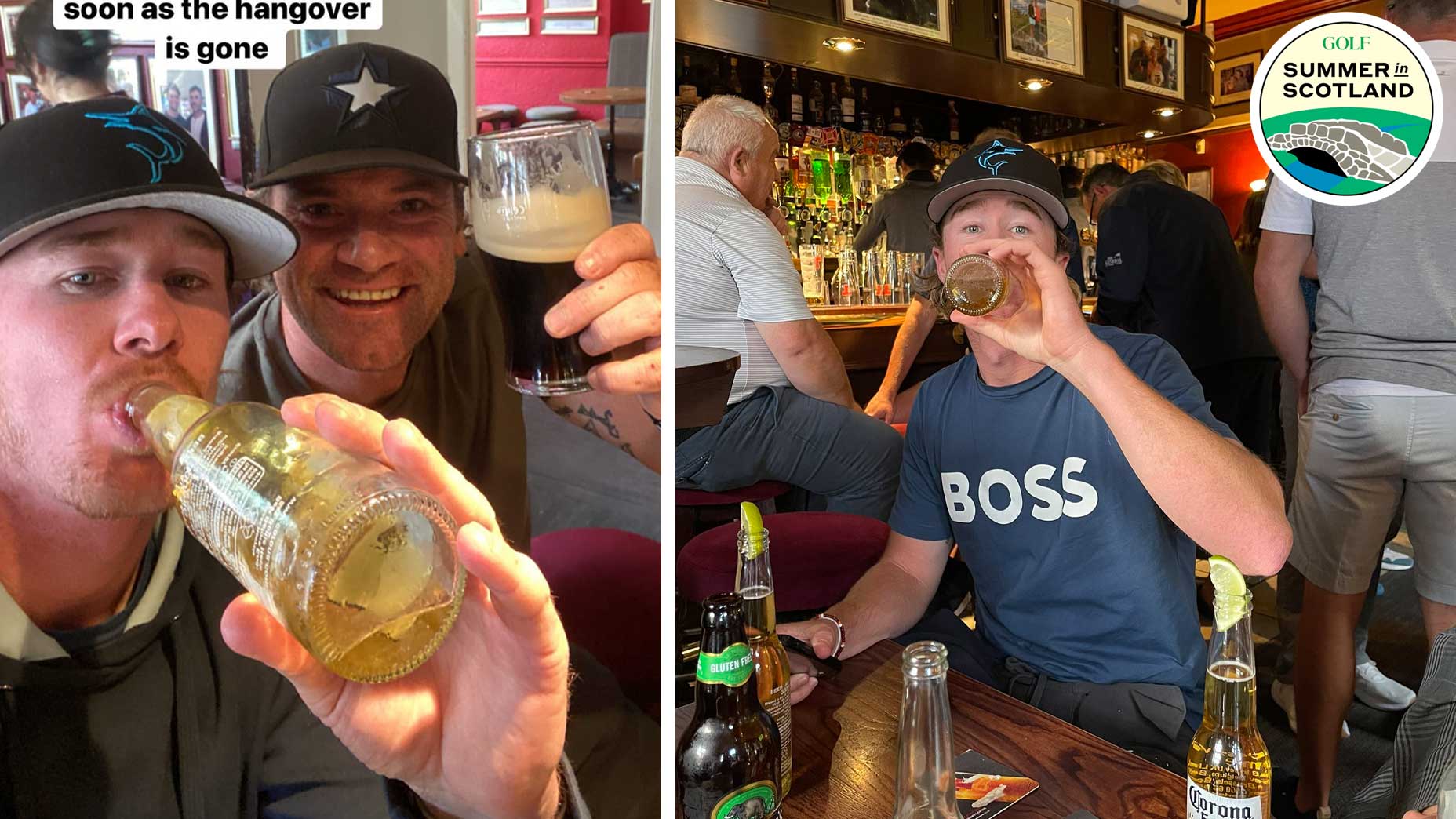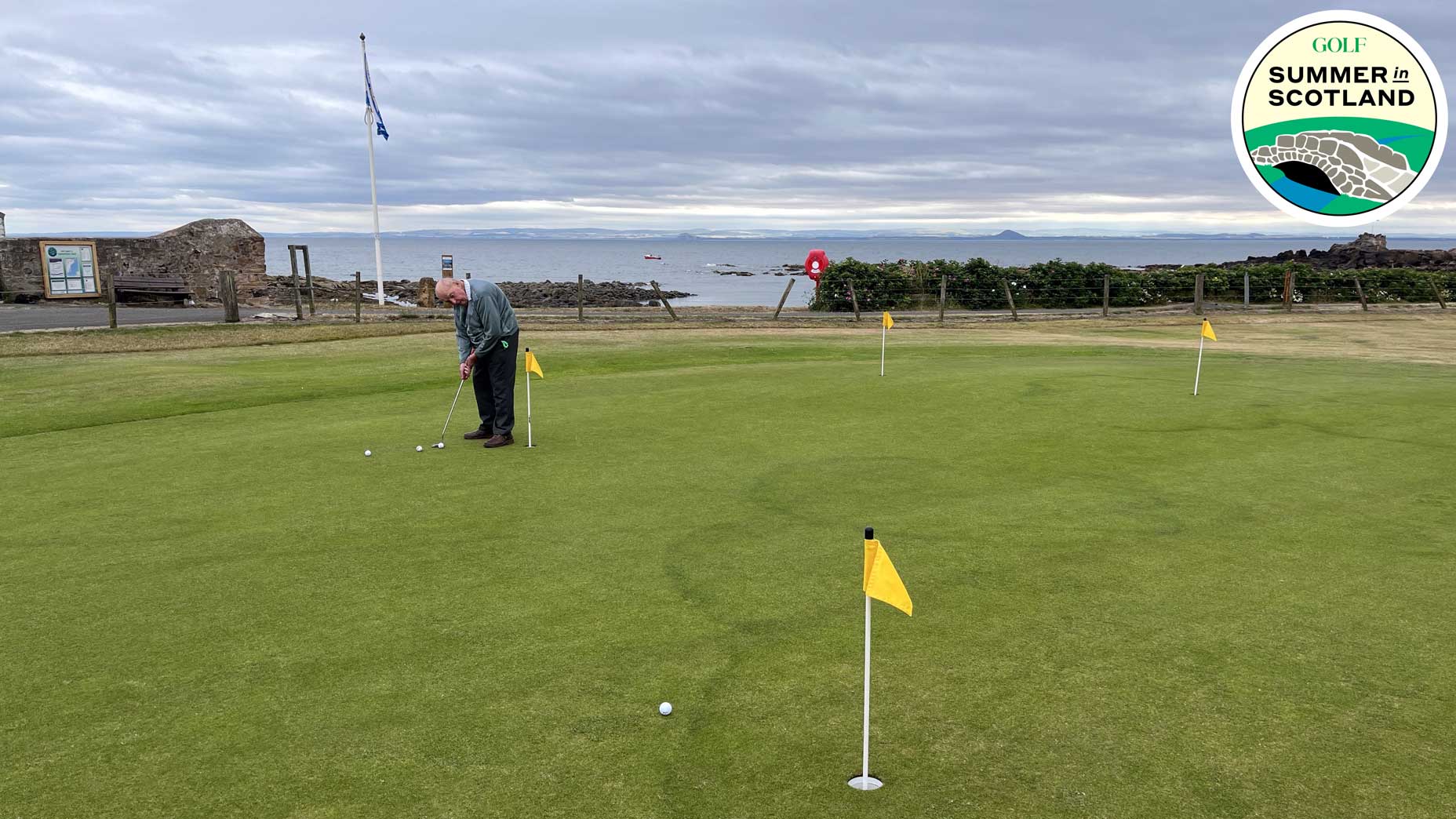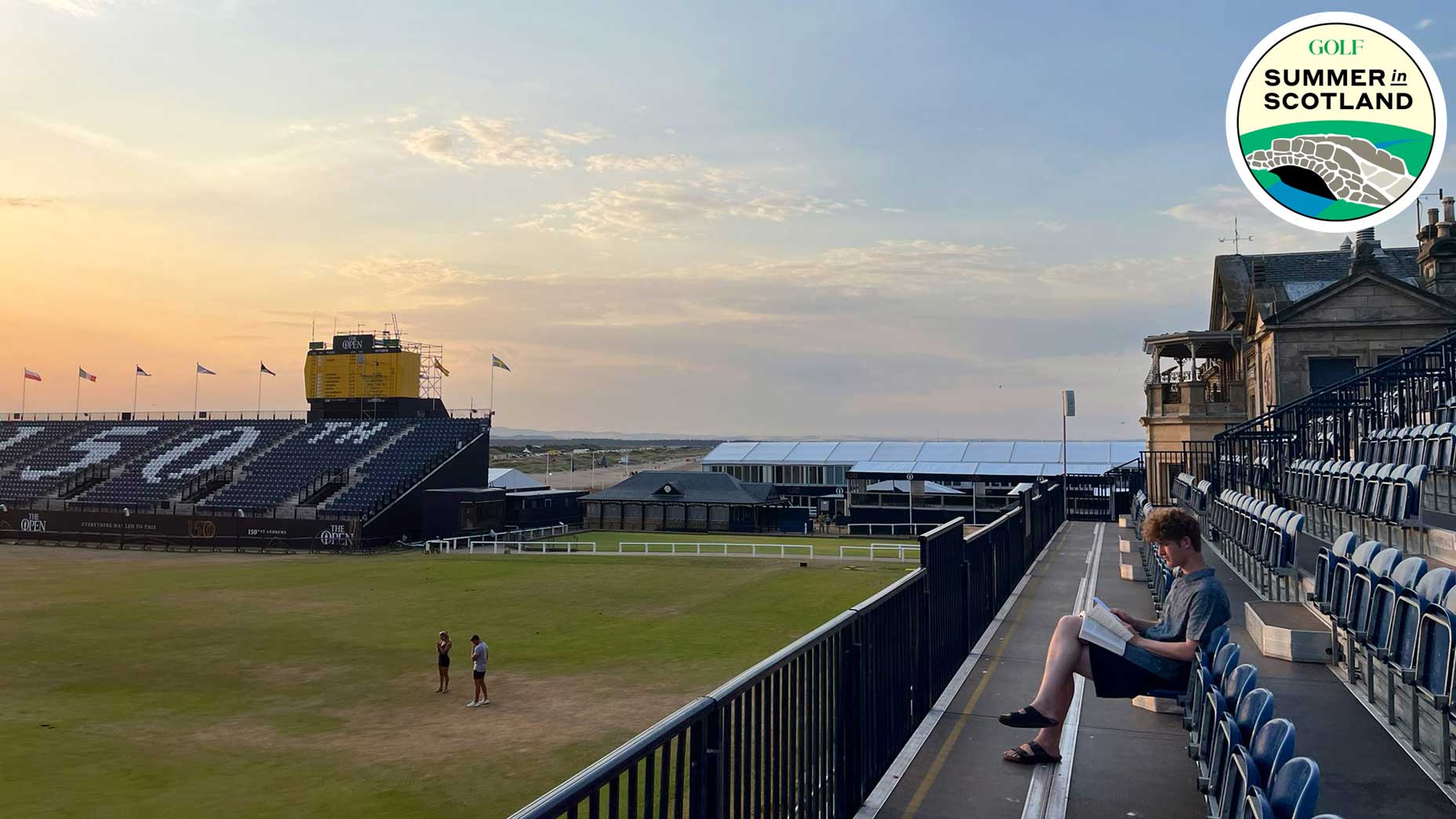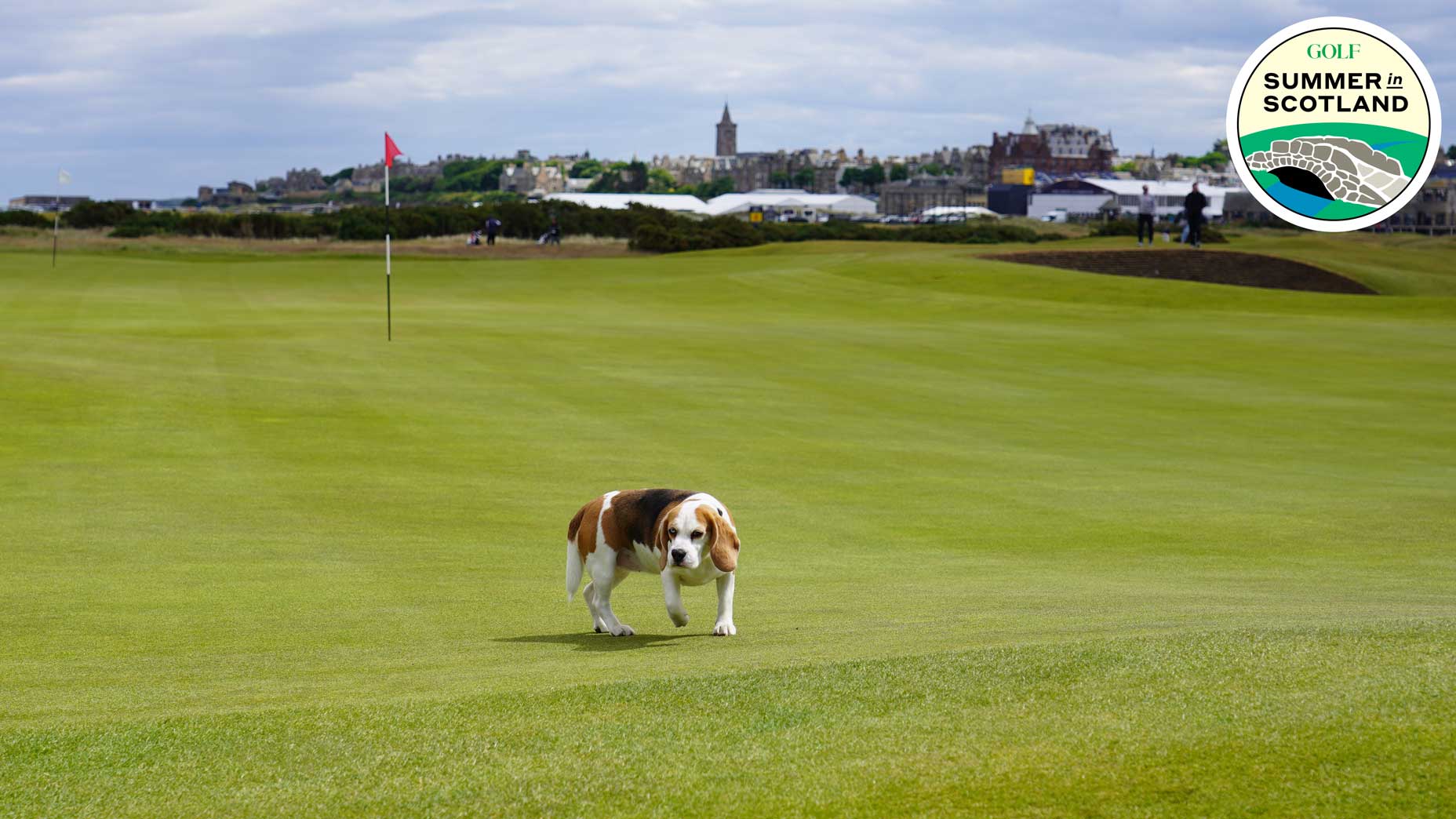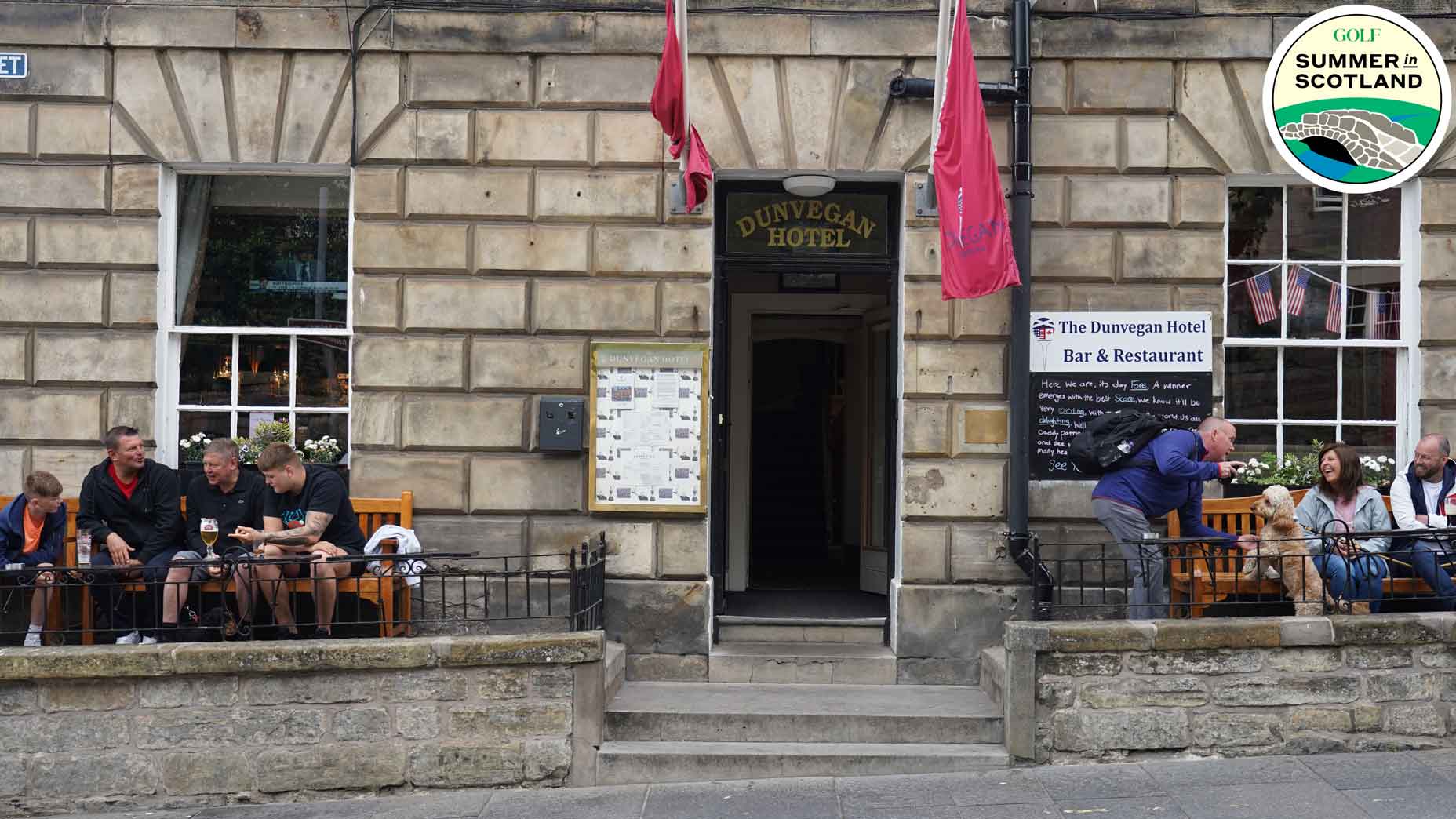ST. ANDREWS, Scotland — There’s a bit of a schism that rests southeast of the St. Andrews Harbor. Hike along the Fife Coastal path (which you can take all the way to Kingsbarns, eight miles away), and you’ll suddenly happen upon the Castle Course, David McLay Kidd’s 2008 addition to the St. Andrews Links.
Kidd may have had an impossible job, injecting something so new into an area where hundreds of years of golf, fishing and hunting had taken place. You learn what he was up against by talking with locals. The Castle remains a polarizing entity 14 years later.
“It was a waste of an opportunity,” said Ronald Sandford the other day over breakfast at The Cottage Kitchen. After 45 minutes, I felt confident no one in the area knew golf like he does. Save for maybe his breakfast partner Jim Rait, whose first golf memory was watching Sam Snead win the 1946 Open. But I had played the course with a friend who essentially majored in golf at the university, and he tended to like the challenge. So did I, but once I shared, Rait jumped in to agree with his pal, saying that land was waiting for a great course, and didn’t receive one.
The three of us had a lovely discussion about all things golf — The Open, Bryson, LIV, etc. — and were able to agree upon one thing about the Castle Course: it has one of the best views of town.
The view from the Castle Course is so good, it’s literally the lead photo on the website for the St. Andrews Community Council. It captures the evening sun splashed against the St. Andrews Pier jutting out into the sea, and the remaining framework of the original St. Andrews Cathedral, rock laid more than 800 years ago.

If it’s windy in town, I was told, you better believe it’s windier at the Castle Course. It was apt advice, and perhaps a core reason for any locals who dislike it. The course’s greens are unlike any other in the area, it seems, tiered and intense. In the firmness of summer, wedge shots with a slight breeze are rejected left and right. Perhaps that’s the point, but it can feel outright vengeful. Play it on a windy day and the Castle Course can be the toughest layout in St. Andrews, and maybe that’s why it’s so polarizing. The Old Course is as straightforward as it gets: if it ends up there, why’d you hit it there? At the Castle Course, not every good shot is rewarded with a good result. They’ve removed some grassy mounds from the middle of fairways as that was a contentious matter early on. It felt right when another friend of mine mentioned how it felt like playing Whistling Straits, America’s midwestern interpretation of links golf.
There’s a challenge in that type of course that sickos like me adore — make me earn that 86 — and perhaps some locals despise. I implored Jim and Ronald with my obsession with the challenge, and we agreed on one more thing: any lingering distaste is washed away by the 17th and 18th holes, which reset the palate entirely. They’re an absolute treat.
Five miles up the hill, you’ll find an even more difficult course: The Duke’s.
Few out-of-towners know much about The Duke’s — it’s just 27 years old, surrounded by centuries of history — but they’re bound to begin to. The course is owned by Herb Kohler and is connected to the Old Course hotel. Visiting town for a few days? The hotel runs a free shuttle up to The Duke’s. Key word in that sentence: Up.
The Duke’s is a heathland course elevated up on the hills just outside of St. Andrews’ official town borders. Sean the 8 handicap has struggled mightily to break 90 from its men’s tees, which stretch to 7,000 yards. It has championship tees — named the Tiger Tees — that go back past 7,500, where, for a decade, the course record was 73, one over. Name another course whose record is over par.
2021 Amateur Champion Laird Shepherd is a member, who finally took down that record last year with fresh Duke’s history: even par. Name another course whose record is even par. Shepherd plays out of The Duke’s for that exact reason. It’s hard, and it’s a middle ground between linksland and the more Americanized version of courses that pro golfers need to dominate in order to make a career. Winning the Amateur for a berth in this year’s Masters was a pretty good start.
Like the Castle Course, it’s easy to get beaten up by The Duke’s. Fellas like me need to muster up some courage and play from a tee box (or two) up. But like the Castle, the 17th and 18th, again, are phenomenal golf holes. A par on either will set you straight with the prize of finishing being a simple as turning around to see the town and all its tanned rock bathed in sunlight.
St. Andrews thing I’m now obsessed with: No Ball Games
Among the relics of history littered across the residential portions of town are signs that say simply “No ball games.” No football, no kickabouts. No games that involve balls.
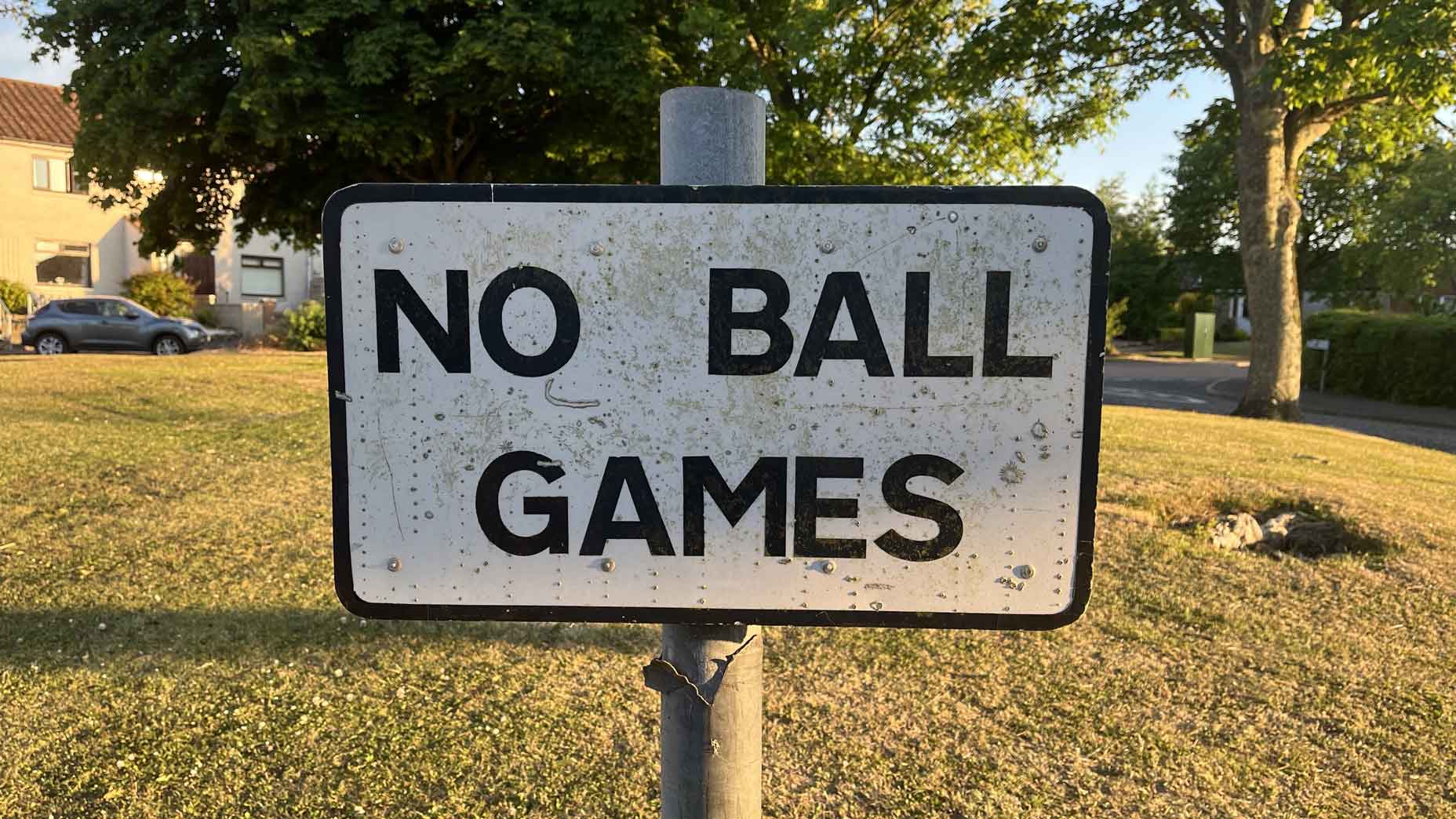
The signs confuse me to no end this time of year, when the sun doesn’t officially set until after 10 p.m., something 8-year-old Sean would have loved to experience in a neighborhood dominated by kickball. But here in Scotland, some green space is cherished and controlled.
Until it isn’t.
The signs have actually been a huge point of contention in various locales across the country as it stimulates a “no fun to be had” mentality for the local youth. According to the Scottish Government, these signs are no longer issued, and most importantly they cannot be enforced. Here, in Fife, they stay up in spots where they are asked to stay up, and brought down in spots where they’re asked to be brought down. Add it to the endless list of things that make life in St. Andrews simple.
Got an idea for a Summer in Scotland story? — I’ll hear them all! Just send a note to sean.zak@golf.com.


